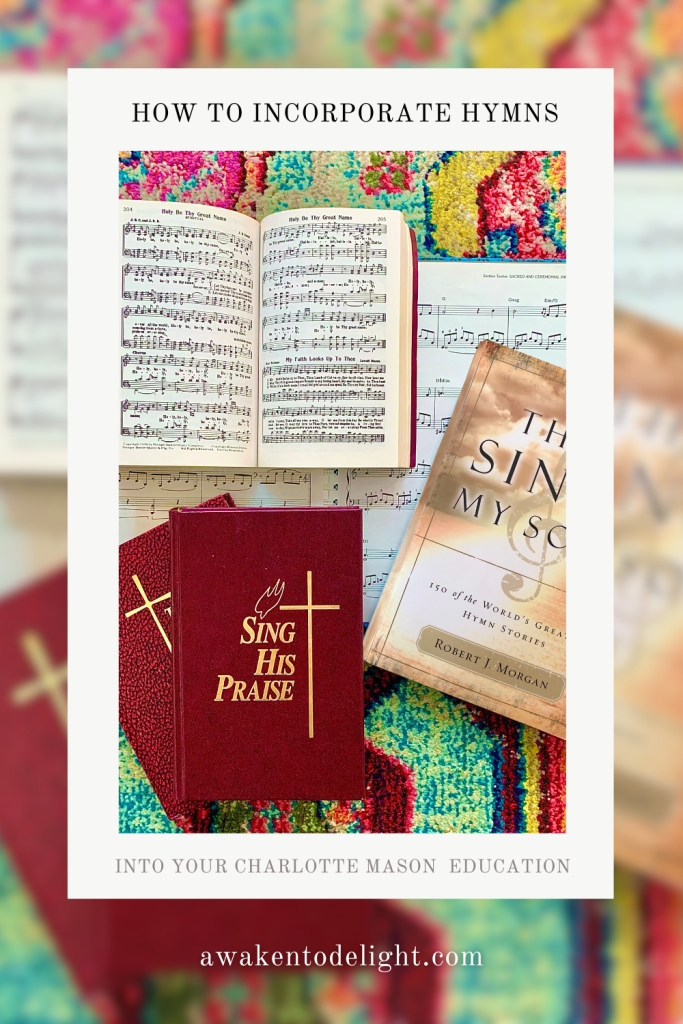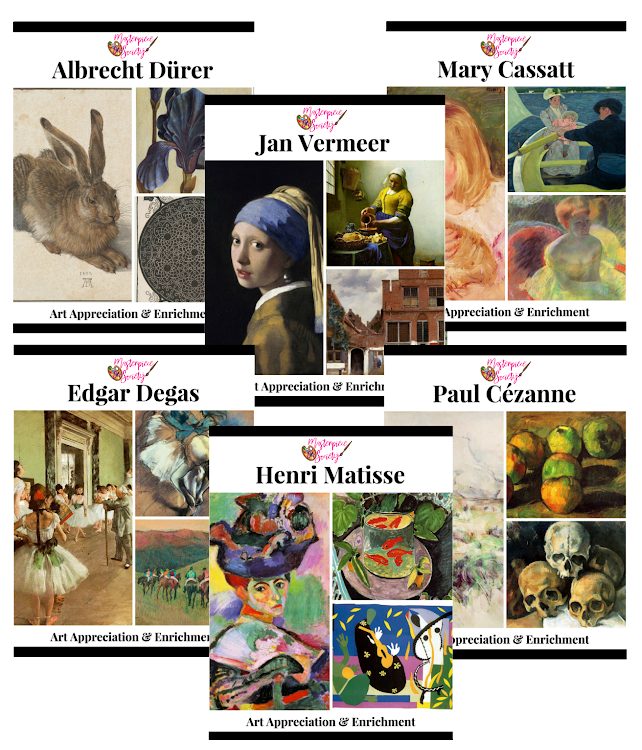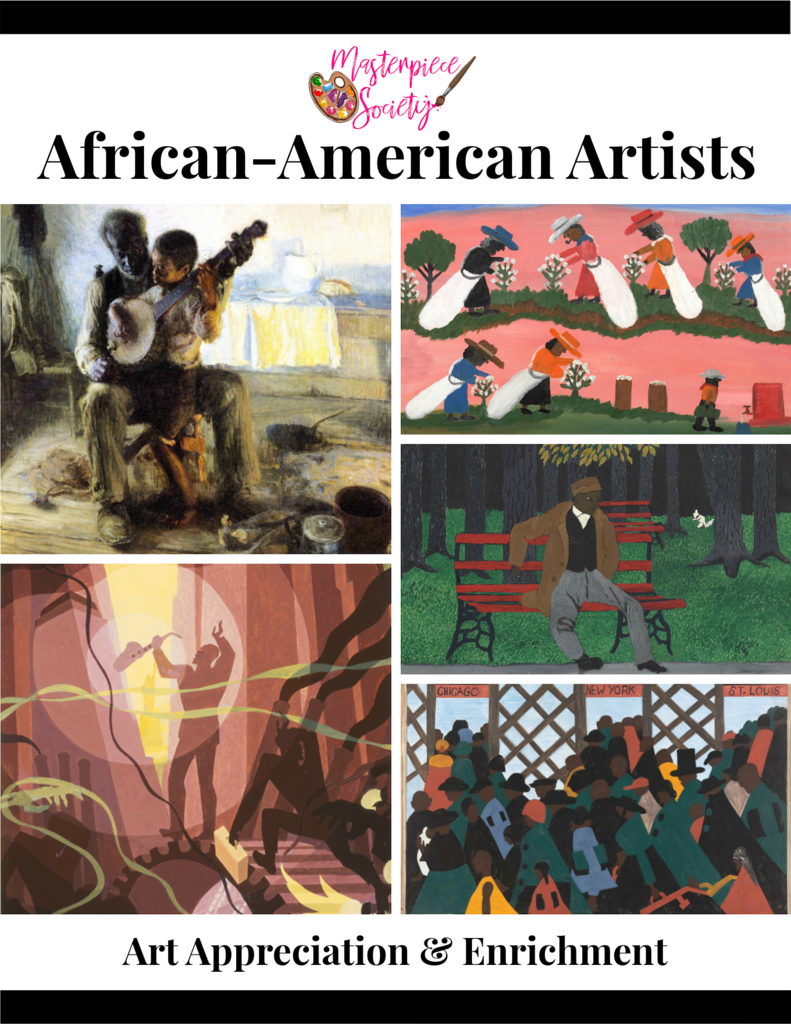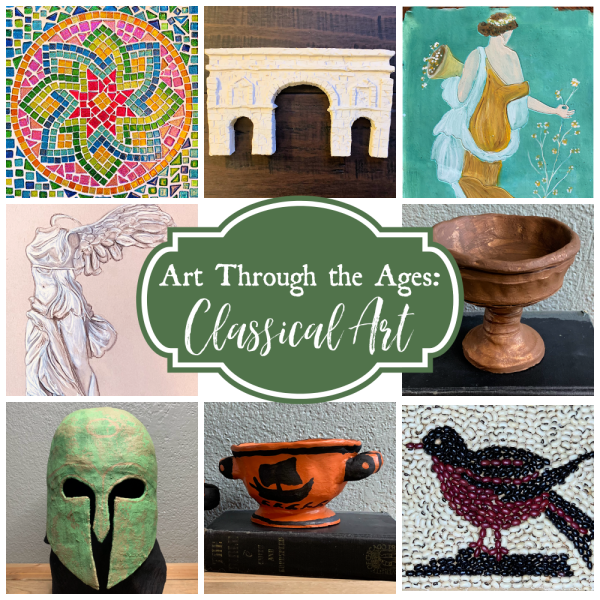Want to incorporate hymns into your homeschool routine? This post will give you inspiration plus practical ways hymns can enrich your schooling.
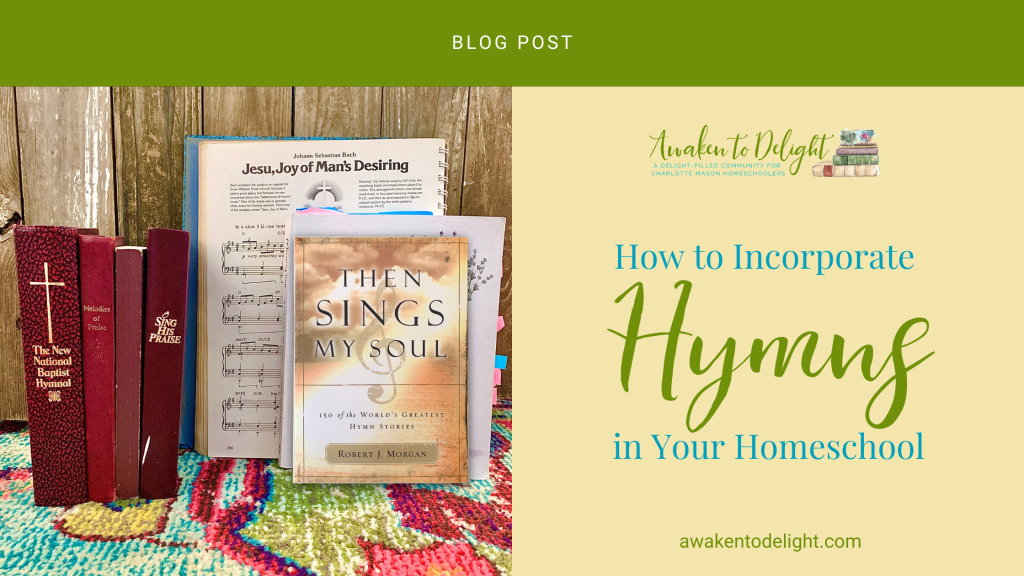
Incorporating hymns into your Charlotte Mason homeschool can be one of the most meaningful and spiritually enriching practices for your family. Hymns are more than just songs—they are a vital part of our Christian heritage, connecting us to centuries of worship, theology, and devotion.
In the Charlotte Mason method, music and hymn study are essential elements of a well-rounded education, nurturing not only the mind but also the soul. Let’s explore what hymns are, why they matter, and how to make them a beloved part of your homeschool routine.
What is a Hymn?
A hymn is a devotional song or poem written and sung for the purpose of praising, worshiping, and adoring the Lord. Unlike contemporary worship music, hymns are often characterized by their deep theological content and poetic structure. Most hymns are set to traditional tunes and have been sung by generations of believers, creating a timeless link between the church’s past, present, and future.
For example, classic hymns like “Amazing Grace,” “How Great Thou Art,” and “Fairest Lord Jesus” have been sung for hundreds of years and remain relevant today because, not only are their powerful lyrics rooted in the Word of God, but they magnify the Lord, allowing our hearts to focus on Him and ascend in worship to Him.
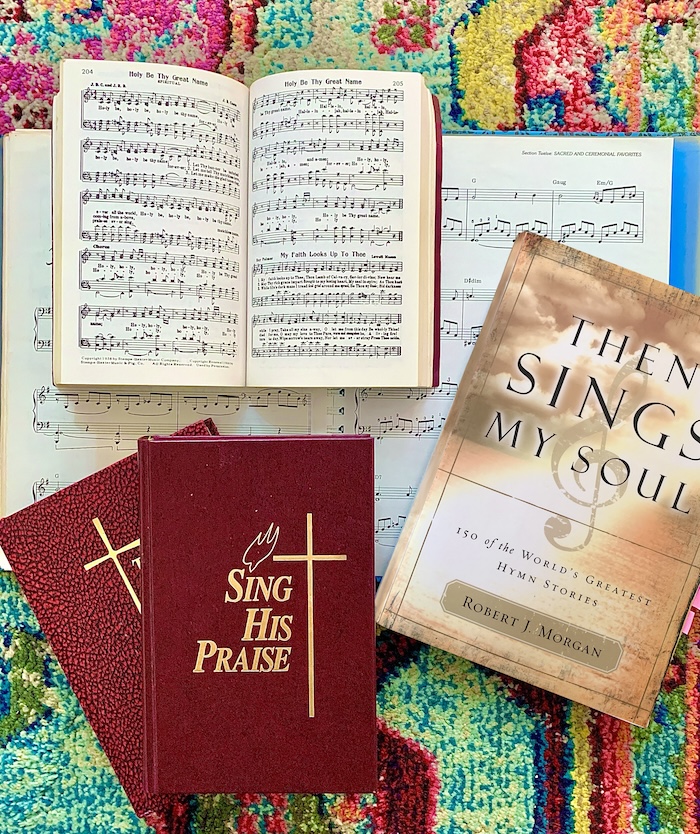
Why Include Hymns in Your Charlotte Mason Homeschool?
Charlotte Mason believed that education was an atmosphere, a discipline, and a life. Hymns embody this principle beautifully by providing spiritual nourishment (lyrics based on the Word of God), cultivating good habits (praising and worshiping God), and enriching daily life (by helping us grow spiritually). Here are several reasons why hymns are important to include in your homeschool:
1. Spiritual Formation
Not all hymns are scripturally accurate or sound. So, it’s vitally important that the songs you sing and teach to your children are actually grounded in the Truth of God’s Word. These are the hymns that will help your kids and teens develop a deeper understanding of the Scriptures and the Christian faith.
“Great Is Thy Faithfulness” is an excellent example. Lamentations 3:22-23 reads, “It is of the Lord’s mercies that we are not consumed, because his compassions fail not. They are new every morning: great is thy faithfulness.”
As parents, we will have plenty of opportunities to correct our children. Just as the Lord corrects us in our spiritual walk with Him. It’s vitally important that our children learn that He is merciful, full of compassion, and will always be faithful to them throughout their lives.
As they sing about God’s faithfulness, love, compassion, mercy, and provision, these truths take root in their hearts, shaping their spiritual lives.
2. Building a Habit of Worship
Charlotte Mason emphasized the importance of habits in a child’s education, and one of the most valuable habits we can cultivate is the habit of worship. Hymns provide a structured and beautiful way to teach your children how to worship God through music. Singing hymns and worshiping the Lord instills the habit of praise and worship that carries into the atmosphere of our homes, within our families, and throughout our lives.
Consider the great hymn “Holy, Holy, Holy.” It echos Revelation 4:8 which says, “Each of the four living creatures had six wings and was covered with eyes all around, even under its wings. Day and night they never stop saying: ‘Holy, holy, holy is the Lord God Almighty,’ who was, and is, and is to come,” (NIV).
Think about the discussion that one verse alone could open up! Not only do we which are on the earth worship the Lord, but we join with saints, angels, and “living creatures,” or “beasts” as the King James Version says, in worshiping the One Who sits on the throne!
Singing scriptural hymns as part of your homeschool helps to instill the Word of God and Christian principles in your children, it can also create opportunities for theological discussions with them as well.
3. Language and Poetry Development
Hymns are a fantastic resource for language and poetry study. Many hymns are rich in literary devices such as metaphor, rhyme, and imagery, providing an opportunity for your children to engage with beautiful language. The poetic structure of hymns, combined with their memorable tunes, makes it easy for children to internalize complex ideas.
For example, the hymn “Be Still, My Soul” uses vivid imagery to describe the peace that comes from trusting in God through disappointment or sorrow. As your children sing these words, they not only develop their language skills but also absorb deep spiritual lessons.
All throughout the Psalms, David had to “speak” to his soul. Through all his trials and tribulations, he learned to quiet his soul and place his hope in God. This is a vital principle that we must teach our kids and teens as well.
“Why art thou cast down, O my soul? and why art thou disquieted in me? hope thou in God: for I shall yet praise him for the help of his countenance,” Psalm 42:5.
4. Connection to Christian History
Hymns provide a tangible connection to Christian history and tradition. Many hymns have been sung by Christians for centuries, offering a link to the believers who have come before us. Including hymns in your Charlotte Mason homeschool is a way to introduce your children to the heroes of the faith who wrote and sung these hymns in their time.
For example, the hymn “A Mighty Fortress Is Our God,” written by Martin Luther, connects your children to the Reformation and the history of the church. Learning the stories behind these hymns can deepen your children’s understanding of church history and their place in the larger Christian community.
5. Cultivating a Love for Music
Charlotte Mason believed in exposing children to the best music, and hymns certainly fall into this category. Singing hymns introduces children to rich, melodic compositions that cultivate an appreciation for music. Many hymns have classical or traditional melodies that can lay the foundation for further music education.
For musically inclined children, learning to play hymns on the piano or another instrument can be a way to engage with the music on a deeper level. This not only builds their musical abilities but also fosters a lifelong love of worship through music.
6. Encouragement and Comfort
Hymns often provide a source of encouragement and comfort during difficult times. Their lyrics remind us of God’s presence and faithfulness, offering peace and hope. Teaching your children hymns gives them tools to turn to in moments of trial, fear, or uncertainty.
For example, the hymn “It Is Well with My Soul” has comforted countless believers through grief and hardship, reminding us that our hope is in Christ, no matter our circumstances. By teaching your children these hymns, you equip them with words of faith that can sustain them throughout their lives.
How to Incorporate Hymns into Your Homeschool
Including hymns in your Charlotte Mason homeschool doesn’t have to be complicated. Here are a few practical ways to get started:
- Start with One Hymn a Month: Choose one hymn to focus on each month. Spend time singing it together daily or weekly, and talk about its meaning and the story behind it.
- Hymn Study: Just as you would do a picture study or composer study, you can create a hymn study. Look up the history of the hymn and the composer, discuss the meaning of the lyrics, and listen to different versions of the hymn.
- Sing During Morning Time: Incorporate hymns into your daily devotion or morning time. This helps to reinforce the habit of worship and makes singing hymns a natural part of your family’s day.
- Memorize Hymns: Help your children memorize a few key hymns. Memorization allows the words of these songs to stay with them, giving them a reservoir of spiritual truth to draw on throughout their lives.
- Learn to Play Hymns: If your children are learning an instrument, encourage them to learn hymns as part of their practice. This reinforces both their musical skills and their connection to worship.
Spirit & Soul Connection
Incorporating hymns into your Charlotte Mason homeschool is a powerful way to nurture your children’s spiritual growth, connect them with Christian history, and cultivate their love for music and language. Hymns provide an opportunity to worship together as a family, create lasting memories, and instill a love for God and His truth. By making hymns a regular part of your homeschool, you are enriching your children’s education in a way that speaks to both their spirits and their souls.
Pin Me!
